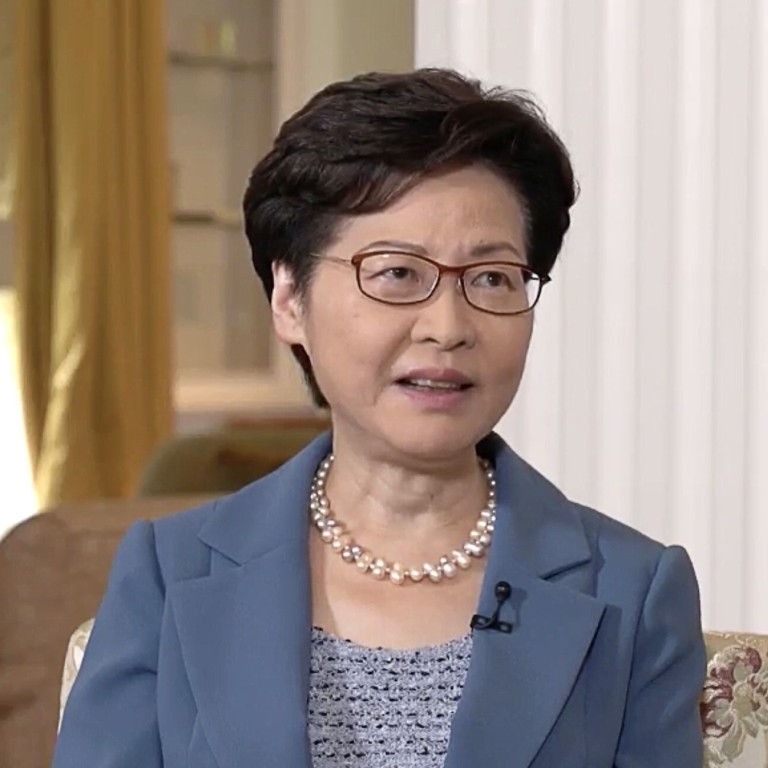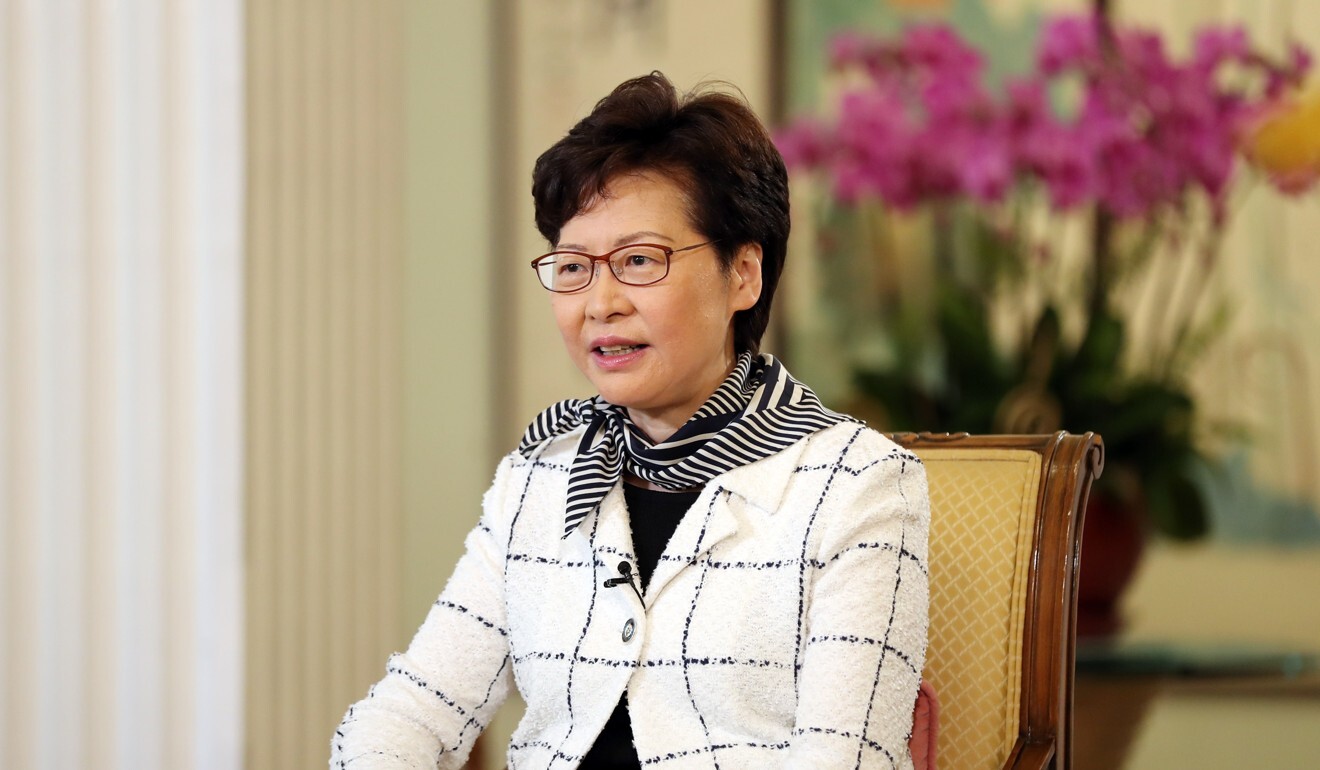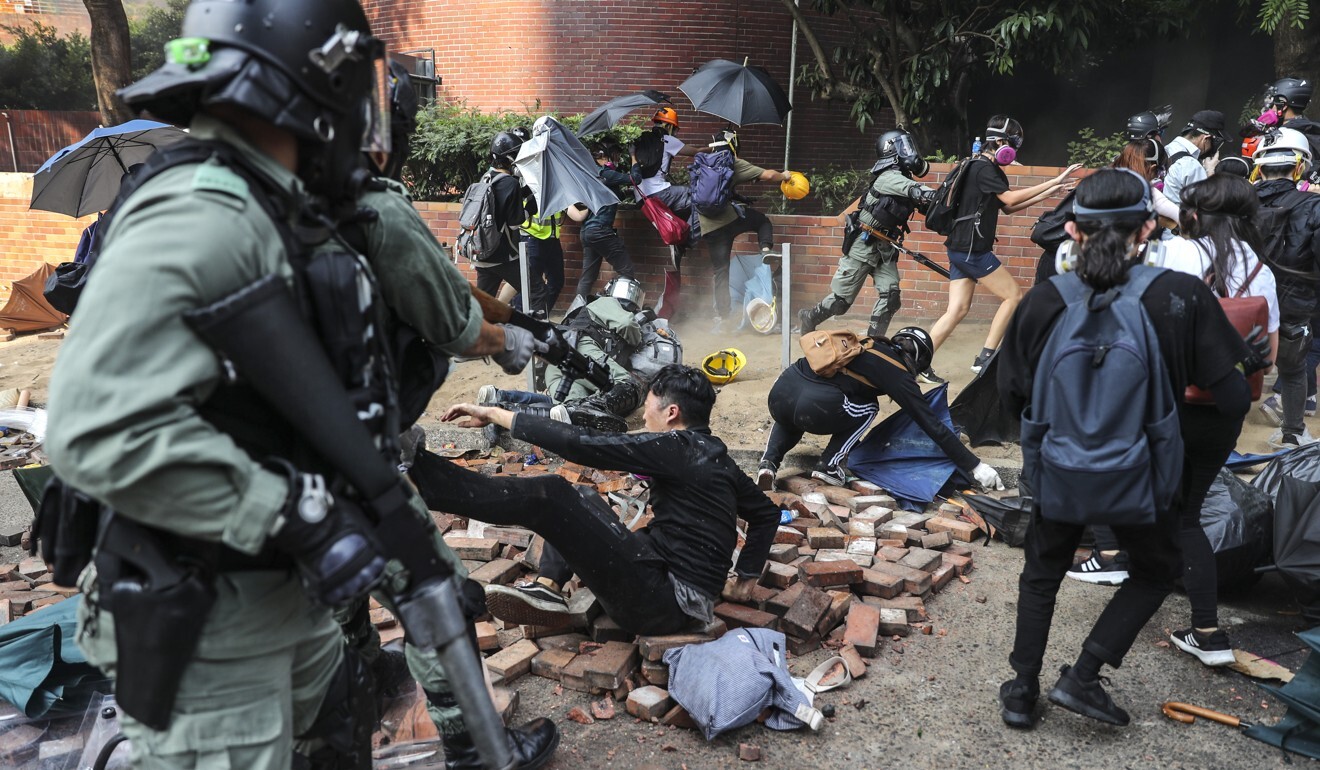
Hong Kong leader Carrie Lam pinpoints political impasse as main obstacle to tackling livelihood issues, vows to address this in coming policy speech
- New stance deviates from her staple approach of focusing on practical issues, with no direct mention in previous speech on civil unrest at height of protests last year
- Chief executive says shortcomings in city’s education system represented a political issue rather than a question of resources
Hong Kong’s leader has singled out the city’s political impasse as the main obstacle to solving livelihood issues, including housing and education, as she vowed to deal with the problem in her coming policy address.
Carrie Lam Cheng Yuet-ngor also said the city’s shortcomings in its education system represented a political issue rather than a question of resources, lamenting that many students had been arrested over unlawful acts in the past year.

The chief executive’s comments, which appeared to deviate from her staple focus on practical livelihood issues, came in an interview with Hong Kong Open TV broadcast on Thursday night.
In her third and most-recent policy address, delivered four months after the anti-government protests were sparked last June by the now-withdrawn extradition bill, Lam unveiled a blueprint boasting more than 220 initiatives, but none tackled head-on the political storm battering the city.
If the political problems remain unsolved, it would be very difficult for the government to make any moves … So, the coming policy address is inseparable from ‘talking about politics’
Housing, welfare and economic issues dominated her speech last October, but Lam conspicuously omitted any reference to protesters’ demands for universal suffrage and an independent inquiry into police’s alleged abuse of power.
In her Thursday interview, Lam admitted she had to address the political turmoil in the city in her next policy speech, expected this October.
Students, migrants worry about impact of Hong Kong Autonomy Act
But Lam also admitted her attempts at governance had been slowed down, or even “extorted” from her.
“Society has to better understand the principle of ‘one country, two systems’. If you still believe Hong Kong has the right to self-determination … but neglect the need to safeguard national security while maintaining a confrontational attitude forever with the mainland ... it is super difficult [to solve the problem],” she said.
“If the political problems remain unsolved, it will be very difficult for the government to make any moves … So, the coming policy address is inseparable from ‘talking about politics’.”
Even so, Lam went on to claim she had already achieved or even outperformed the pledges she made before her election three years ago, proudly pointing to her work in welfare. She did not mention her pledges to “heal the social divide” and “unite our society”.
Over the weekend, candidates who have been active on the protest front lines won big at the opposition’s primary, despite a minister’s warning it could breach the national security law.

The polls were aimed at narrowing down names in the camp to contest the September Legislative Council elections.
Activist Joshua Wong Chi-fung and 15 other primary winners identified themselves as a new “resistance bloc”, reaffirming their defiance of the Hong Kong and Beijing governments.
Lam said she already found it difficult to communicate with traditional incumbent opposition lawmakers, expressing worries that even livelihood policies would be blocked if Legco was further radicalised.
Asked why she had skipped question and answer sessions at Legco despite repeated requests from the pro-democracy camp that she attend, Lam said she told them: “There is no room for reason … it just provides another opportunity for you to put on a show.”
Hong Kong’s traditional opposition parties lose out to localist challengers in fierce weekend primary for coming Legislative Council election
But she refused to comment on whether localists might be barred from running in September’s Legco elections, saying that would be left to the judgment of electoral officers.
Lam, a mother of two, added she felt strongly about the arrest of many students during the months-long civil unrest, and that the city’s education problems were political in nature, expressing hope the sector would reflect on the matter.
Yearly education spending has increased to HK$13 billion (US$1.7 billion) since she took office.
On the potential for a tide of emigration amid social unrest and fears surrounding the new national security law, Lam said it was a personal decision, but she believed Hong Kong still had a bright future and that social stability would soon be restored.
Lam added there was much room for growth in the city’s financial sector thanks to China’s vast market. On top of the recently announced two-way cross-border wealth management pilot scheme, Lam said more such policies were in the pipeline.

